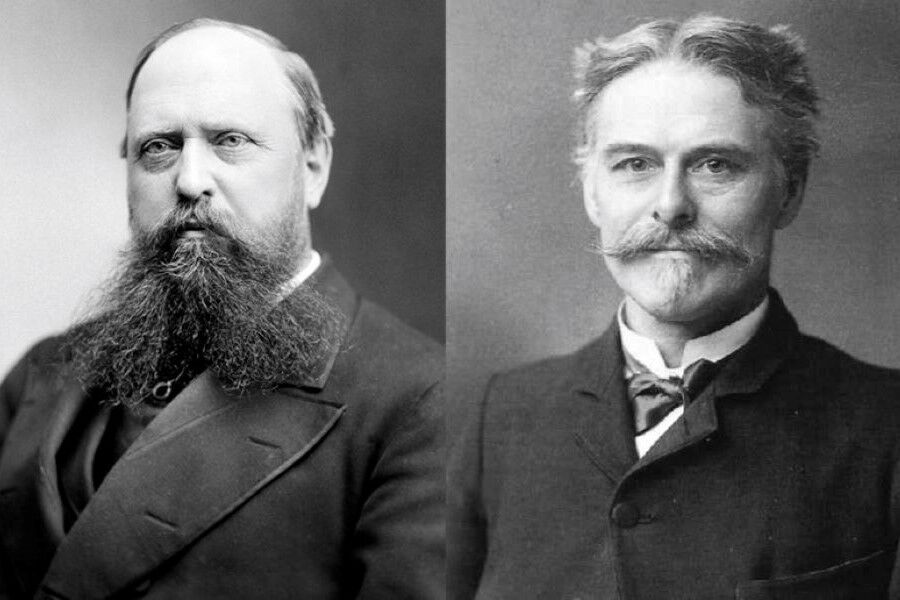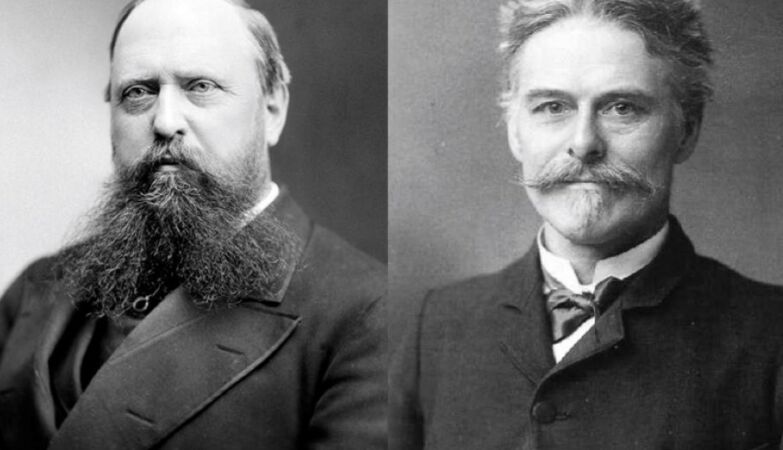Wikimedia
Othniel Charles Marsh (left) and Edward Drinker Cobb (right)
Paleontologists Edward Drinker Cope and Othniel Charles Marsh set science apart with their astonishing discoveries, but also with their intense competition.
At the end of the nineteenth century, the United States was the scene of a historic competition between two paleontologists, Edward Drinker Cope and Othniel Charles Marsh, in an episode known as “Bone Wars“(Bone Wars).
Although the competition resulted in Discover more than 100 species Of dinosaurs, including Stegosaurus, Brontosaurus and Triceratops, the dirty methods used by scientists ended up tarnishing their reputation and heritage.
Cope and Marsh met in the 1860s, while studying paleontology in Germany, and initially maintained an apparently friendly friendship. However, the relationship soured when they both returned to the United States and began dating Competition in fossil discovery. Marsh went so far as to bribe the owner of the quarry that Cobb showed him to send him future fossil finds, Marsh explains. IFLScience.
The situation became worse when Cope made an anatomical error in a study conducted on extinct marine reptiles, Osmosaurus platiurus. After Marsh pointed out the error, hostility emerged between the two It has become irreversible.
The expansion of the transcontinental railroad gave both men tremendous opportunity to develop their work. In 1877, the discovery of well-preserved fossils at Como Bluff, near the town of Medicine Bow, Wyoming, became the center of this rivalry. They both sent excavation teams, which camped close to each other, leading to Episodes of physical fightsEspionage and mutual accusations of sabotage and trespassing on others’ property.
If anyone can be identified as The “winner” in this struggleIt would be Marsh. While Cobb faced financial difficulties, and invested in silver mines that turned out to be a failure, Marsh was appointed Chief of Vertebrate Paleontology at the US Geological Survey.
However, both scholars He died poor and alone, leaving an ambiguous legacy. Their discoveries contributed greatly to the field of paleontology, but their childish and unethical behavior discredited the very science they both sought to advance.
This story serves as a reminder that science, despite its promise of objectivity and rationality, is carried out by fallible human beings, full of ego, insecurities, and biases. Being a great scientist does not necessarily mean being a great person.

“Wannabe internet buff. Future teen idol. Hardcore zombie guru. Gamer. Avid creator. Entrepreneur. Bacon ninja.”


